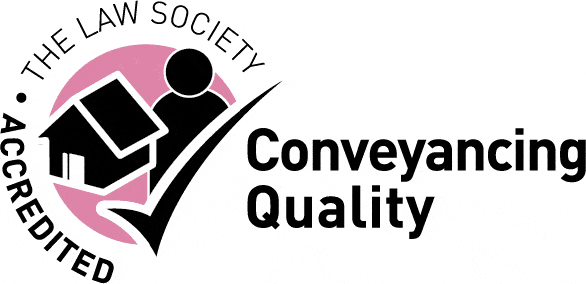Who to choose as an executor for your will?
When making a will, many individuals assume that the most important consideration is who will benefit from their estate followed by how much they will receive. Choosing the right Executors to appoint should also be a significant consideration. The executor role carries important legal duties and responsibilities.
 What does an executor do?
What does an executor do?
The role of the executor of your will is very important, they are tasked with the job of carrying out the instructions you leave in your will when you die. This can be an extremely complicated responsibility even if your instructions, assets and your property are quite straight forward. It is common that the process can take several months and you need to consider whether you want to burden your next of kin at a time when they themselves are still grieving from your death. The job of an executor is sometimes challenging mixed with emotion, they will are responsible for matters such as deciding when to sell assets such as your property so that the beneficiaries of the proceeds get what they should inherit. They also need to consider Inheritance Tax, Capital Gains Tax and Income Tax implications from those who are inheriting from your will.
Executor responsibilities also include:
• Finding all your financial documentation on your death
• Sending a copy off the death certificates to all of the institutes that hold money for you and ensuring that these accounts are frozen.
• Opening a bank account for the estate
• Ascertaining what is owed to you and the estate
• Finding out what money is owed to others
• Making a list of all your possessions, property and money
• Collecting money in, to include savings, bank account balances, pensions, investments, bonds, shares and insurance policies
• Calculating Income Tax, Capital Gains and Inheritance Tax liabilities and paying these
• Paying out money that is owed such as bills, credit cards, loans and other debts
• Deciding the appropriate time to sell your property so that your beneficiaries get the maximum money as possible
• Paying expenses such as legal and probate fees
• Distributing the money leftover in accordance with your will
Being an executor can be a difficult job even when your instructions are clear and the assets are minimal. The complete process can take many months to complete.
Who can be an executor of a will?
An Executor is a person who is legally responsible for the administration of your wishes in accordance with both the law and the terms of the Will.
The Executor of the will can be anyone aged 18 or above. There are no lawful rules against people named in your will as beneficiaries being your executors. In reality, it is very common for beneficiaries to act as Executors of wills. In most instances individuals select their spouse, civil partner or children, to act as the Executor of their will. There can be up to four executors who can act at a time, but they all have to act collectively so it might not be practical to appoint these many people. At Harrison’s Solicitors, in our opinion, it is appropriate to choose two executors in case one of them dies before you do. It is common to select both a family member and a professional such as an accountant, solicitor or a public trustee. Professional executors have extensive experience and knowledge and this can be pivotal when executing wills, but most will charge for their services. It is feasible to appoint substitute executors to cover the situation if your first choice dies before you.
It is a good idea to choose someone that you believe will handle the task of being an executor well. It is very common to name one of your children, a niece or nephew or an adult grandchild as an executor to your will. Rather than just elect them to be an executor for you, it is important that you make sure you ask them that they are happy to undertake this important responsibility before writing the will. If they do decide against accepting the role, you will need to get the will changed and re-written. When deciding your executor carefully consider your options before selecting your husband, wife or partner as your only executor. They will be dealing with your death. By naming somebody else to be an executor with your husband, wife or partner, you can at least reduce the burden of the paperwork from their shoulders
In our opinion it makes a lot of sense to choose a solicitor as an executor, especially if sorting out your affairs is likely to be complicated – they are knowledgeable and experienced at the job. They know their way around legal, taxation and property issues. You may wish to consider an accountant or bank as an Executor if the financial side of your will is especially complicated. Other reasons why to choose a professional executor include:
• You may not feel comfortable appointing a family member or a friend as your Executor
• The relationship with your potential professional executor is good, therefore you may feel more confident and at ease in appointing them as your Executor;
• Due to the complexities related to your estate that may require a professional’s knowledge and experience in dealing with matters
• There may be nobody else who can properly carry out the role
Professional specialists will charge you for the work they undertake. They will charge in a number of ways including:
• By sending a bill for their time when your matters related to the will s have all been sorted out
• By taking a percentage of the total value of your estate – this will be written into your will
• A set flat fee for managing the process
It is important to understand from the outset how your solicitor, bank or accountant will charge for being an executor and how much each option will cost before you commit yourself.
What if my appointed Executors encounters difficulties?
There are instances when your nominated non-professional Executor finds certain situations difficult and they may need to seek professional guidance and advice from a solicitor. This may be necessary if they find the process time-consuming and too difficult to deal with. Once you have chosen your executor, make sure that you record their full name and address within your will. If they cannot be found, they will not be able to undertake their responsibilities for the execution of the will
Harrison’s Solicitors provide advice to Executors regarding their legal duties and can take instructions to administer the estate on their behalf. Examples of the types of tasks we can carry out on behalf of an Executor including:
• Ascertaining and collecting in the assets and paying any outstanding liabilities of the Estate
• Preparing the necessary probate papers
• Preparing the Executors’ Oath
• Calculating the inheritance tax due
• Completing the necessary HMRC Forms
• Preparing the necessary estate accounts
• Distributing the estate in accordance with the terms of the will
If you wish to discuss making a Will or you require any further advice on this, please contact our experienced and knowledgeable team at Harrison’s Solicitors.
| Reading Office – Harrison’s Solicitors 7 Castle Street Reading RG1 7SB Tel: 0118 321 2979 |
Caversham Office – Harrison’s Solicitors 1 Prospect Street Caversham RG4 8JB Tel: 0118 321 9651 |
Woodley Office – Harrison’s Solicitors 72 Headley Road Woodley RG5 4JE Tel: 0118 321 9773 |

